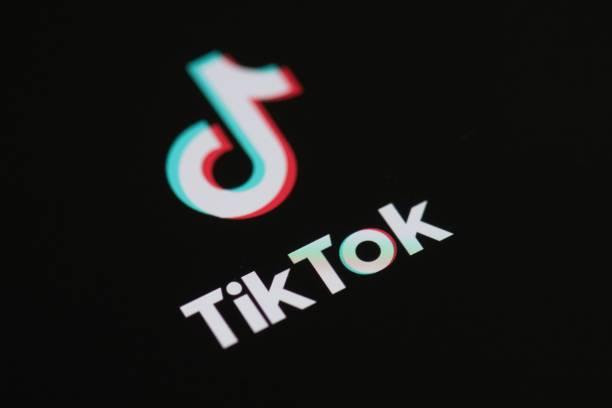Hi guys, let us start off by saying this, whether you’re an expert on handling communities, or you’re new to community building and you’ve been thinking of starting your own online community, then this article is surely for you.
What Is Online Community Building?
In the past, communities were more physical than online, religious communities, academic communities, sport fan bases, and so on. These days, communities that are physical now have an online presence as it allows them to reach out to more people. The advent of the internet brought the option of interacting with each other without having to meet physically.
No matter how you look at it, in a community, the opinion of every single member matters, making it a unified body. It’s a community first because the people in it are like-minded with a common goal and purpose. It’s important to note that it can never be a community if the members do not interact with each other and have participatory roles.
An online community is a group of people who have come together in a designated digital space to interact, share opinions, views, thoughts, perspectives on a specific topic or to achieve a common goal.
It can also be referred to as a web community whose members interact basically through the internet and you have to gain access to specified content through specific links.
Meanwhile, Online Community Building is the process of developing a virtual community and bringing people with shared interests together, aided by technology and guided by rules, regulations, and/or protocols.
What Is An Online Community Platform?
As the Merriam-Webster dictionary put it, a platform is:
- Something that allows an enterprise to advance; a foundation or stage.
- A place or an opportunity to express one’s opinion.
We removed some definitions that were out of context for the topic we’re treating, for example, a platform is also a raised horizontal flat overside or surface.
So, a platform is an avenue for effective communication and a medium for expressing one’s views, this is a space that allows for the views, opinions, and standpoints of members of a community to be heard.
An online community platform is the best way to nurture communication with your audience. It focuses on a specific concept or subject ranging from technology and learning – academic or otherwise to entertainment and other fun activities. These platforms are used by individuals to grow their business as they market their products and services and as a result increase revenue, brand awareness and exposure. An online community platform can also be used to grow a fan base through effective communication and team participation.
A major advantage that comes with having an online community for the services you render is being able to fuel your hustle and follow what you’re passionate about whilst reaching out to other people in the process.
Top 11 Platforms for Online Community Building
Here we’ve discussed and compared some of the most popular Platforms for Online Community Building to assist you build your online community, and engage them with activities and sessions. So sit back, get comfortable and read on and find the platform that suits you best.
- Mighty Networks
Mighty Networks allows you bring your community together in one place alongside your content and online courses plus charging for online courses and membership. The website can also be tweaked to your style. It has options for you to make money from your content which is very important.
It is also important to equip your members with different ways to pay for whatever they want and not only that, being able to provide flexibility for payments (monthly, yearly, or for one-off fees).
Choosing Mighty Networks allows your members to have seamless transactions. You can post recorded clips and videos of online courses or allow your members to stream live sessions.
- Patreon
Talk about a platform that accommodates a large variety of creators from vloggers to artists, podcasters, musicians and so on, while monetizing their subscriber base. Patreon is regarded as an OG platform being one of the oldest around.
Patreon is perfect for niches with passionate fans, allowing you to create patreon-only posts and built-in emails to effectively communicate with your audience. It’s free to get started with Patreon, but when you start earning they collect 5%, 7% and 12% on their Lite, Pro and Premium. They also charge you for successfully processed payments, charging 2.9% + $0.30 for payments above $3 and 5% + $0.10 for payments below $3. Patreon is also known for consistency with payments.
- OnlyFans
OnlyFans is a subscription-based platform that has since grown popular as Covid-19 hit the world. With OnlyFans, artists, musicians, entertainers, sex workers, vloggers and other creators can monetize their content and earn from it. Users can sell or buy original content, for buyers to get access to the content, they must pay a monthly subscription fee ranging between $4.99 and $49.99.
- YouTube
YouTube is widely known as a platform to share video content, however, one amazing feature of YouTube is that the platform allows you to build your own fan base and audience of loyal and dedicated individuals that grow into communities. It is important to note that to grow a community on YouTube, there has to be a sense of belonging and connection which is often measured by assessing viewer engagement.
To monetize your YouTube account and earn from your community:
- You must have at least 1000 people subscribed to your YouTube channel.
- Your videos must have been watched for 4,000 hours over a period of 12 months.
- You must comply with all of YouTube’s policies and guidelines.
- You must have an AdSense account set up for you to earn from ads.
- Circle
Circle is a new online community building platform designed to bring together your discussions, members, courses and content. Circle is also about reconciling your existing audience from other platforms into one digital space.
Circle involves making content available in as many ways as possible to as many people as possible from wherever they want making them invest more, monetarily or otherwise.
Although Circle does not have a mobile app, it offers a simple and easy-to-navigate design for your online community platform.
- Tribe
Tribe increases your engagement with your audience, helps you to retain customers and loyalty. You can generate an integrated community website and enable a user discussion with question and answer sessions, with features such as likes, upvotes, shares and comments. Your audience also gets the best customer support through the help of automation tools. It also has excellent APIs to manage the activity in your community.
Although there’s the free plan option for individuals and small-scale communities, if you’re looking to upgrade, plans start at $85 to $245 or more per month for brands, companies, regulated businesses, and enterprises.
- Buy Me A Coffee
This donation-based online platform is for anyone at all with an audience that would be willing to pay for your services or content. It is perfect for artists, creators, and small-scale communities. Buy Me A Coffee allows your audience to give you one-off tips or support you monthly while you make extra cash by selling digital content or giving access to exclusive content.
Payment is made directly to your bank account with the website charging no fees at all except the standard processing fees for Stripe and PayPal accounts.
- Slack
Slack serves as a team collaboration software aiming to replace the need for physical meetings via online communication, ensuring every member of your community is kept up to date.
Slack prides itself as a freemium service, in other words, it is free to use, although you pay a monthly subscription to get the full version.
- Superpeer
Superpeer is a video communication platform used for paid video calls and live streams. Creators, professional experts, vloggers and influencers find this software useful for earning through a revenue model. Superpeer accepts bookings on behalf of clients and allows them to pay at a convenient date and time automatically. Creators or influencers can tweak their rate chart within the software.
- Vanilla Forums
Vanilla Forums as a platform for building your online community drives loyalty and helps you build your brand awareness. It features content management and moderation, discussions, question and answer junctions, crowdsourcing, and so on.
You can start up with a free trial, but subsequently you have to pay.
- SubscribeStar
This online community building platform caters for vloggers and visual content creators, educators, coaches and teachers, entertainers, clerical organizations and individual preachers and so much more.
SubscribeStar allows you to edit posts, view your stats and analyse your progress with built-in analytics tools. It protects your content by anti-skimming and anti-scraping features. SubscribeStar charges 2.9% + $0.30 for successful payments with a 5% charge on every pledge. PayPal and Stripe are not available on SubscribeStar.
Final Verdict
There are plenty of interesting options when it comes to choosing which online platform you would love to use. Some work better for specific niche communities, for example, an online community that mostly shares video content rather than communicating with each other via texts would thrive better on platforms such as YouTube and OnlyFans.
As a result, we advise you to spend some quality time deciding which online community platform would work best for you. Leave your experiences, thoughts and questions in the comment section below. We appreciate the feedback.

























